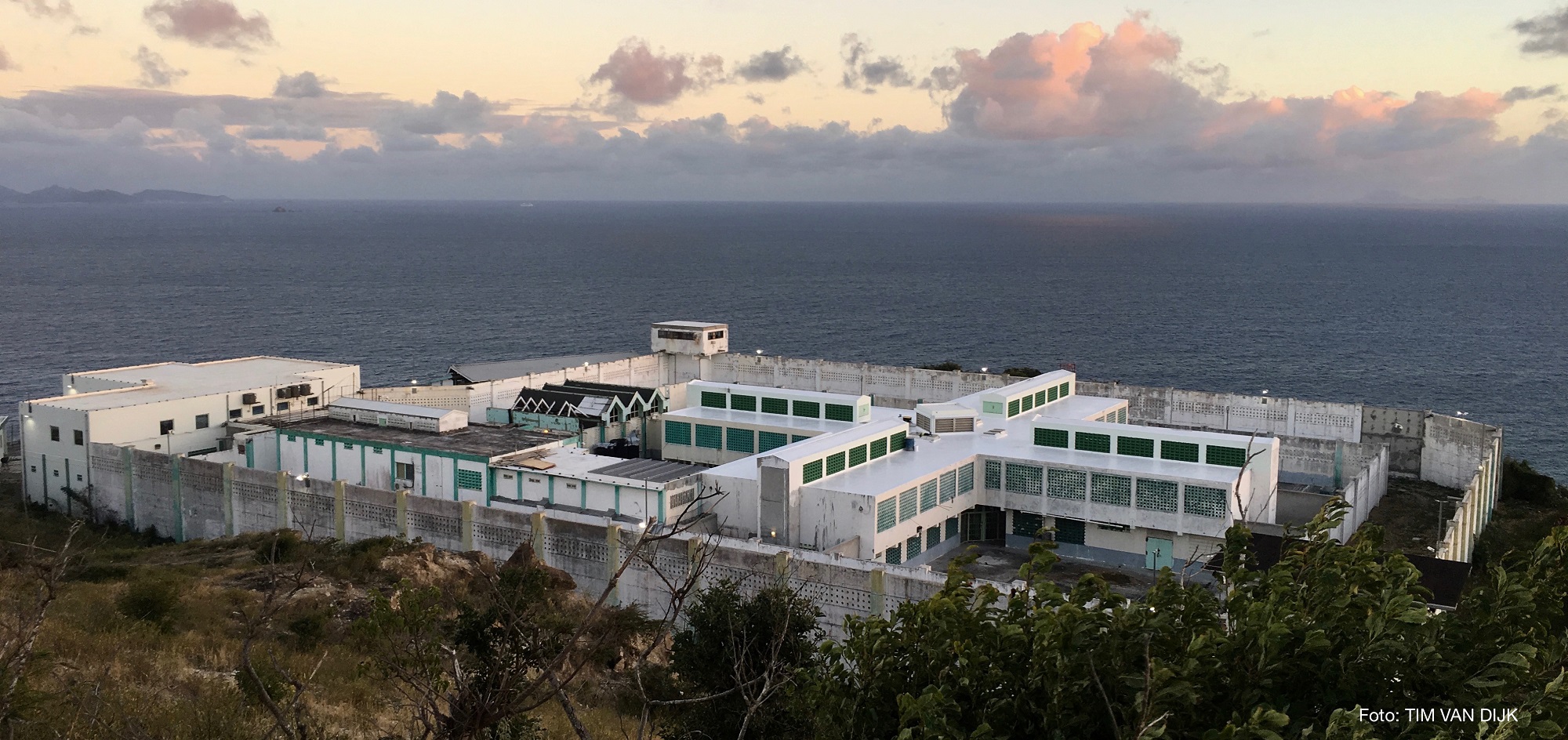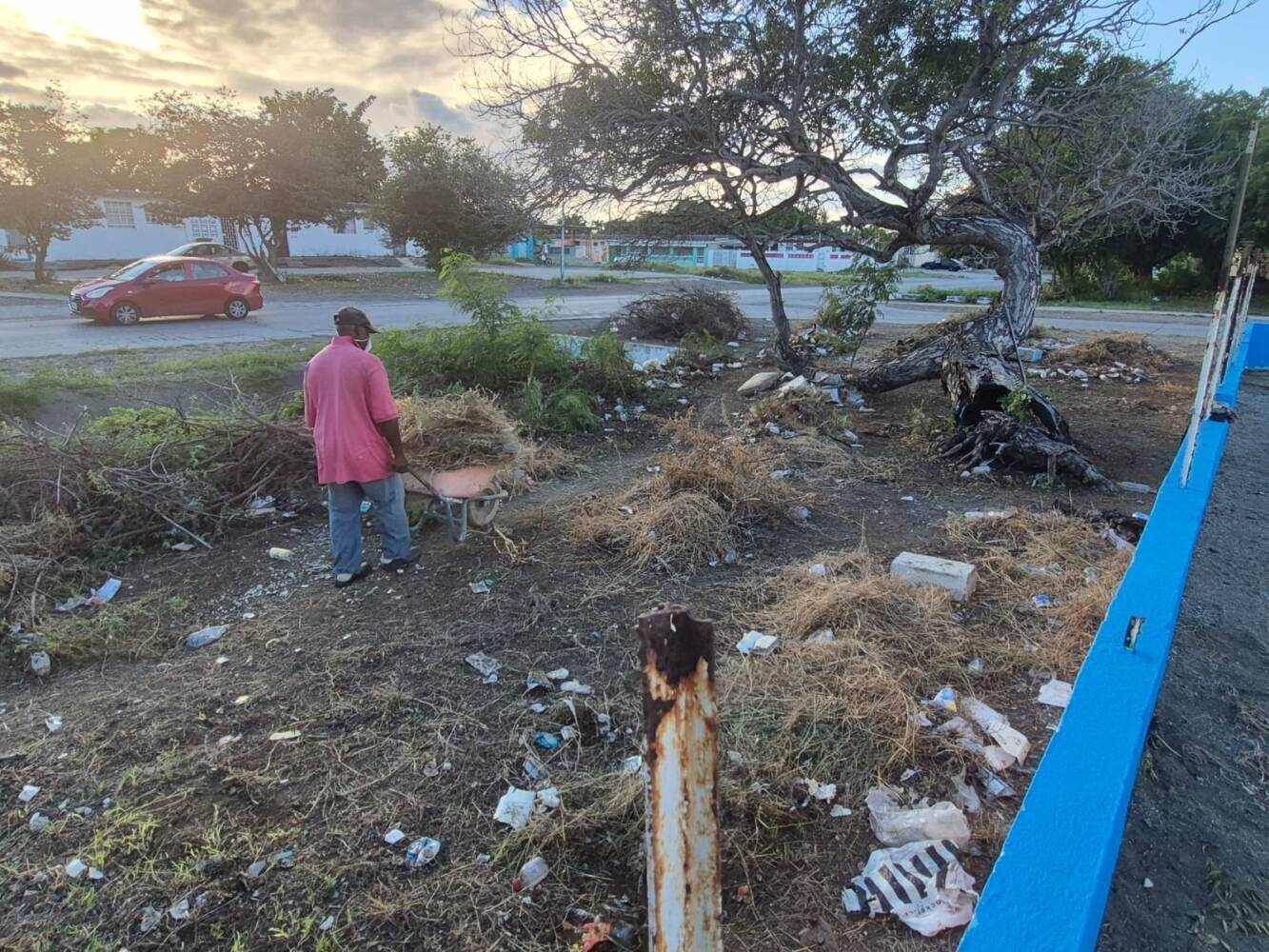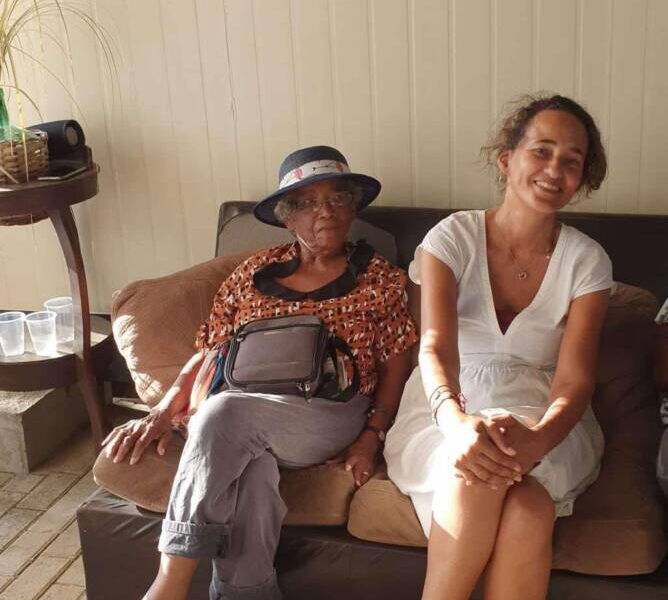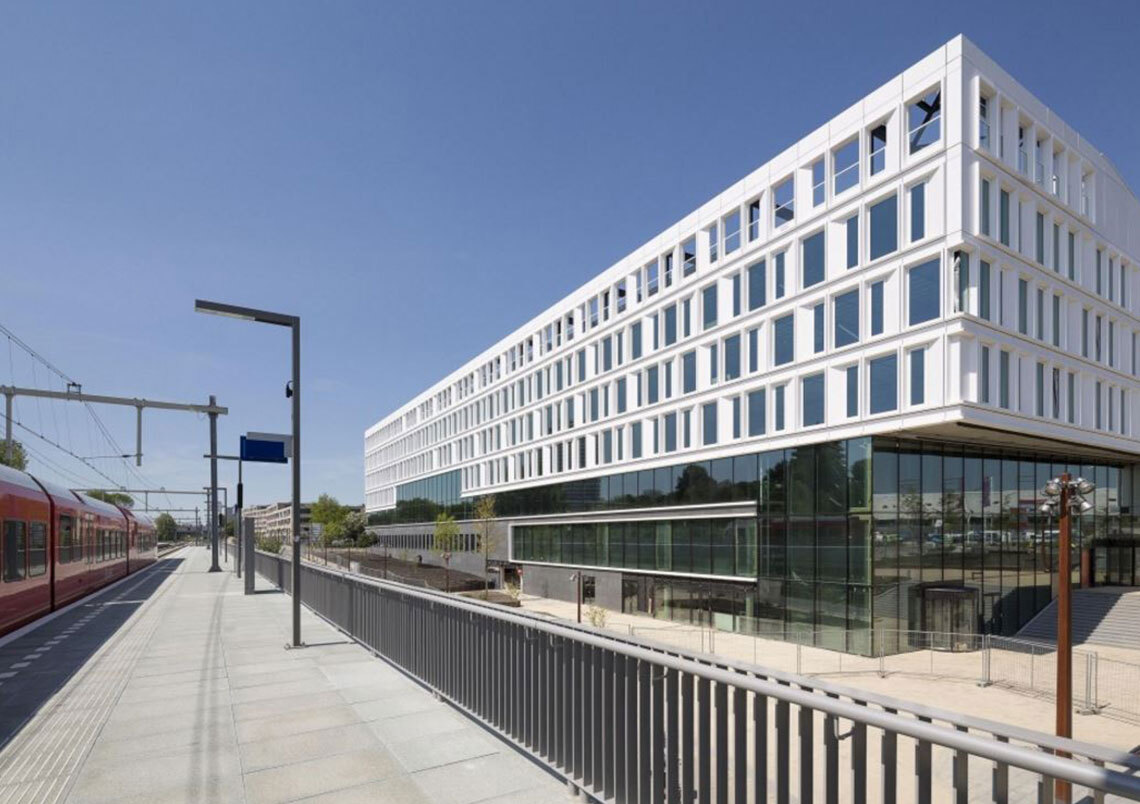PHILIPSBURG – “We are very concerned, we require more detention capacity quickly. The change of government will cause delays. The prison is overfull.” So says the chief prosecutor for Sint Maarten Mirjam Mol.
A temporary solution seemed close last month: eleven container cells from Bonaire were transported to Sint Maarten by the Defense Department. Tjandra van Lake of the ministry of Justice confirms that due to the departure of the minister the works being carried out on the container cells have ceased. “We don’t know when they’ll start up again.”
Due to the lack of detention capacity, detainees are required to spend more than the allowed ten days in police station cells. Additionally 23 detainees are being detained in the Netherlands since the Pointe Blanche prison was badly damaged during hurricane Irma in 2017. Sint Maarten pays 120.000 euros per month to the Netherlands for the detention of these individuals.
Delays unavoidable
Nico Schoof, the chairperson of the Voortgangscommissie Sint Maarten, will be on Sint Maarten in two weeks with the rest of the commission. The commission was slightly positive for the first time in years in their last report which was published two months ago. The commission was impressed by minister Cornelius de Weever, who has since stepped down, and saw progress. “The change in government will cause inevitable delays. In the Netherlands work can continue because of the size of the government institutions who have an official mandate. On Sint Maarten, all the projects need the personal attention of the minister”, says Schoof.
The director of the Pointe Blanche prison expects that 80 percent of the long term detainees, including those currently in the Netherlands and Curaçao, will be detained at the prison within one year. In the meantime crime is on the rise. During the first half of this year 24 incidents of crimes where a firearm was used have been registered. This is an increase of 50 percent compared to 2018, according to the numbers of the Office of Public Prosecutor for Sint Maarten.
According to the Office of the Public Prosecutor more and more felonies are being solved and long term prison sentences are being handed down. This increases the need for more detention capacity.
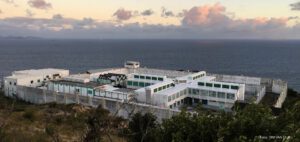 Photo by Tim van Dijk On Sint Maarten the lack of detention capacity and rehabilitation have been the talk of the town for a while. Read more about it here: Prison system on Sint Maarten: ‘human rights are violated on a daily basis’ |
The Kingdom has been under supervision of the Council of Europe since 2017 because suspects were being detained under deplorable conditions for months in police station cells. The cells have been renovated but the detention capacity remains a major concern. The Office of the Public Prosecutor has to transfer detainees daily and find solutions to detain suspects. The Council will decide later this year on whether or not it will extend the supervision.
‘The Netherlands has to help’
The reports of the European Committee for the Prevention of Torture and Inhuman or Degrading Treatment or Punishment (CPT) of the European Council and the reports of the Voortgangscommissie Sint Maarten have been negative for years. “The prison system is firstly the responsibility of the government of Sint Maarten. But we’ve been calling on the Netherlands for years to help out more. Sint Maarten can’t do it alone. There’s only one country in the Kingdom with enough knowledge and resources: the Netherlands.”
| CDA wants to take over legal system on Sint Maarten
Member of Parliament Chris van Dam tabled a motion this week – which passed – with the proposal that the Netherlands would take over the legal system on Sint Maarten for five years. “The CDA wants law enforcement, like Foreign Affairs and Defense, to be a Kingdom responsibility. The countries are too small to take care of this themselves” said Van Dam, a former police officer and public prosecutor, on Tuesday in Parliament. State secretary for Kingdom Relations Raymond Knops advised against voting for the motion , because it would restrict the autonomy of Sint Maarten. Because Justice falls under the Consensus Kingdom Act (Rijksconsensuswet), the Hague cannot simply force this plan upon Sint Maarten. The government of Sint Maarten has to approve Van Dam’s plan. |




